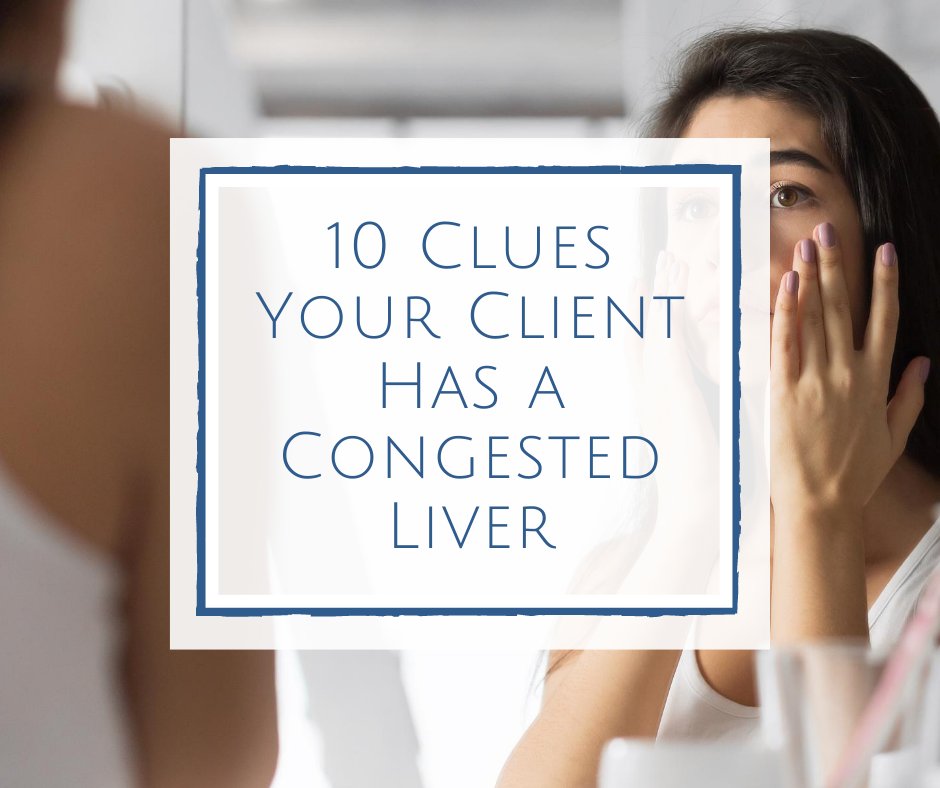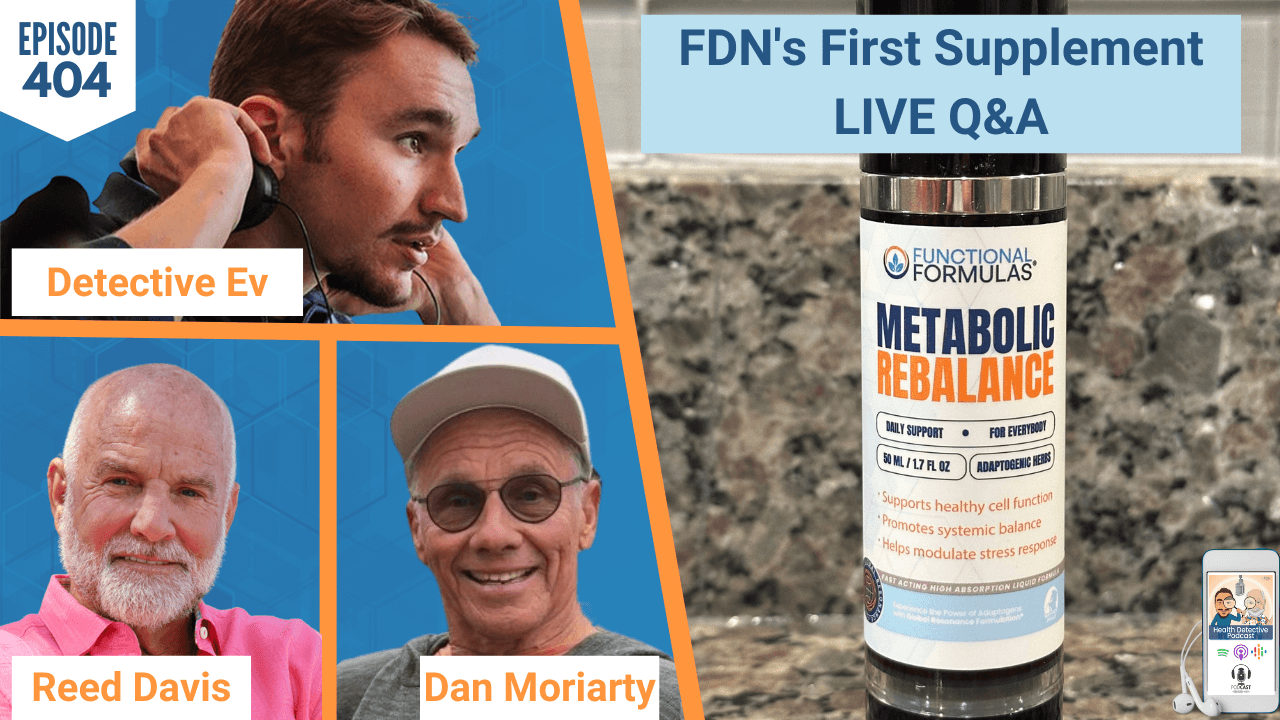The liver, otherwise known as the Grandfather of all Organs, takes on most of the daily strain from lifestyle and nutritional choices. So, it is no surprise that the amount of people who are struggling with decreased liver function continues to grow due to modern day stressors and toxins. For Health Coaches, this means an increase in clients with liver dysfunction whether you are aware of it or not.
The more toxins the body is exposed to, the harder the liver has to work to remove them. If the liver struggles to keep up with the demand for detoxification, it may become sluggish and congested, as its ability to filter toxins diminishes. When this occurs, your clients may begin to see signs pointing to sub-optimal liver function. These signs often look similar to other common and recurring health issues, and typically the focus is on alleviating symptoms versus eliminating through the root cause.
As a Functional Health Coach, you can investigate underlying causes of these unwanted conditions including lifestyle, the environment and individual weak links in metabolism. To begin, it is important to be able to recognize clues that point to certain areas that could benefit from health building principles, such as a congested liver.
What are liver congestion clues?
- Poor Digestion – One of the functions of the liver is to produce the bile and bile salts necessary for digestion. Bile assists in helping the body to breakdown fats, as well as to absorb fat soluble vitamins such as vitamin A, D, E and K. When the body isn’t producing enough bile and bile salts, digesting fats will become difficult. Acid production will increase in the stomach in order to assist in breaking down fats, and indigestion may occur. It is easy for Health Coaches to overlook the liver when dealing with digestive issues, but it should be not ruled out. With a Certification from Functional Diagnostic Nutrition ®, you can utilize functional lab tests to help assess the root cause of symptoms such as digestive issues.
- Hormone Imbalances – The liver is vital for the breakdown and removal of hormones in the body once they have served their purpose in the body. Without being able to fully remove excess hormones, they can build up in the body. This can lead to symptoms such as high blood pressure, bloating, weight gain, fatigue, sleep problems, low libido, low immune system function, cravings for junk food and mood issues for your clients.
- Weight Gain – As Health Coaches, we often see clients who experience the cycle of trial and error when attempting to keep off unwanted weight. Liver function is one area that must be addressed with clients who continually gain weight. When toxins build up in the body, they can cause an imbalance in blood sugar and hormones which can ultimately cause the pounds to add up…even if your clients are eating well and exercising regularly!
- Skin Problems – If toxins are building up in the body because they are not being filtered out properly by the liver and other detoxification pathways in the body, then your clients may start to see skin problems such as acne, rosacea, rashes, psoriasis, dermatitis and eczema.
- Fatigue – if your clients are feeling drained and fatigued, even if they are getting plenty of sleep, it may be the body telling them that their liver is not functioning properly. The resulting toxic build up from your liver can contribute to symptoms like fatigue and overall Metabolic Chaos®.
- Bad Breath or a White Coating on Your Tongue – The tongue is a great indicator of the state of your health and if you see a white coating, it could suggest that the liver is sluggish. The white coating and bad breath are a sign that the person is not digesting food well, and as a result, bad gut bacteria such as Candida can spread, and an overgrowth can occur. Since the liver is connected to good digestion, when it is sluggish, it can contribute to these symptoms.
- Chemical Sensitivities – When assessing liver function, you can ask your clients “Do the smell of certain perfumes or cleaning products give you a headache or make you anxious or irritable? Are you a lightweight when it comes to drinking alcohol?” If their answers are yes, they could have chemical sensitivities – often due to having too many toxins in the liver.
- Cravings – Craving sweets and highly processed carbohydrates may be caused by hormone and blood sugar imbalances that are common when the liver is not working effectively.
- Gallbladder Problems – The gallbladder and liver are connected. The liver produces bile and bile salts that are necessary to break down dietary fats. That bile is then stored in the gallbladder, where it stays until the next meal when it is needed. But if there is not enough bile being produced, then it will be much more difficult for your body to break down fats. When the gallbladder isn’t functioning properly, your client might experience health issues such as nausea, indigestion, abdominal bloating and an intolerance to fatty foods as well as an increase in abdominal pain.
- Pain in the Right Upper Portion of the Abdomen – As the liver becomes more congested, inflammation occurs and with inflammation comes pain. The pain caused by an enlarged liver usually can be felt in the area where the ribs end on the right side of the abdomen.
Many of these symptoms can be disruptive to everyday life, and some can ultimately become life threatening if not dealt with in a timely manner.
If left unresolved, a congested liver can become non-alcoholic fatty liver disease, which can further compromise liver function. Fatty liver disease was typically a disease found in alcoholics, but in recent years, more people are being diagnosed with it, without being alcoholics, over 3 million people in the US are currently living with this disease.
The good news is, a congested liver can be reversed using natural methods and function restored, with proper detoxification, and nutrient support. Since each client is an individual, there is no “one size fits all” protocol to re-balance the liver and rest of the body. Working as an FDN practitioner, you will have the tools you need to confidently solve your client’s personal health issues and get them on the road to feeling better again.







